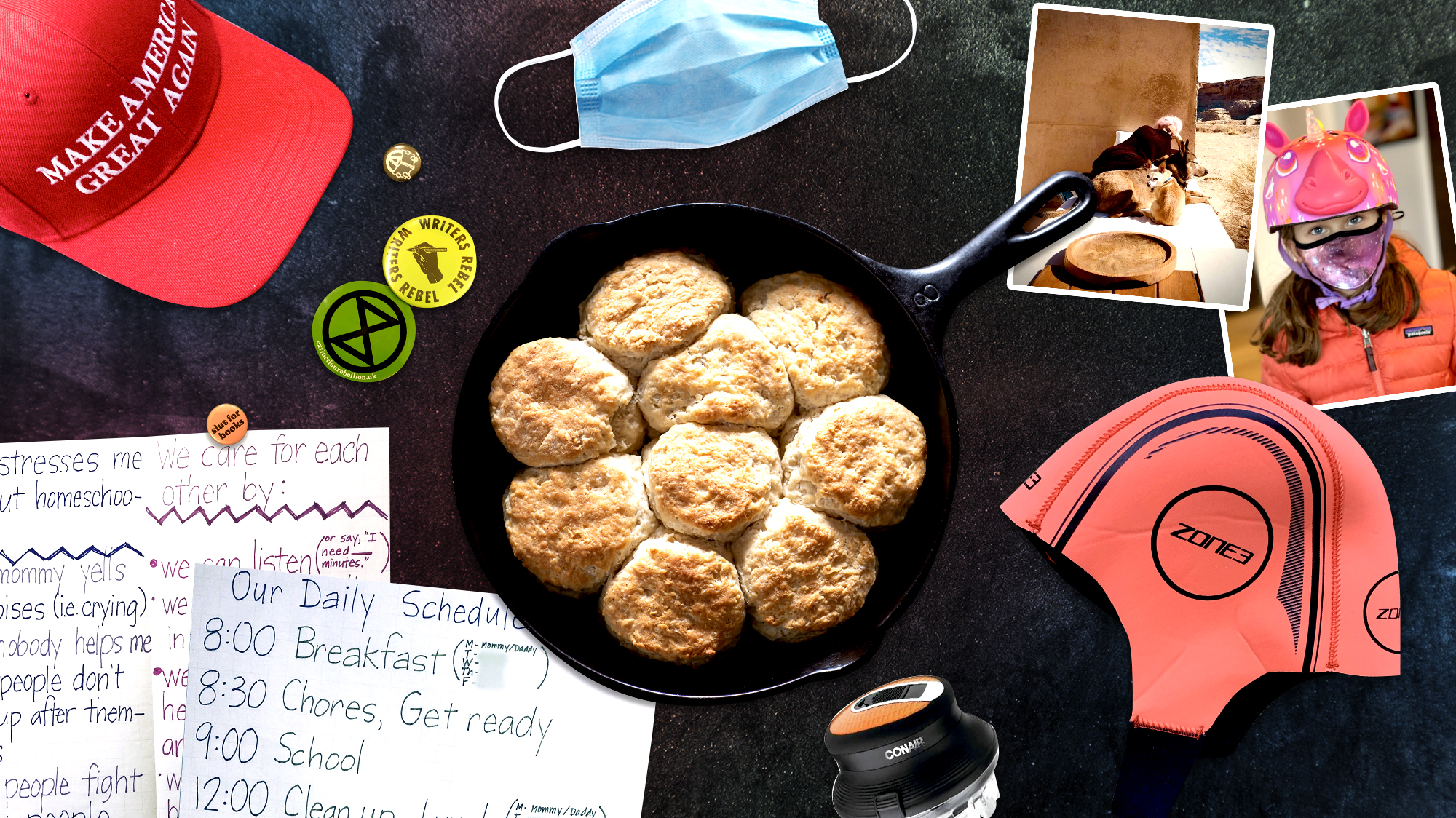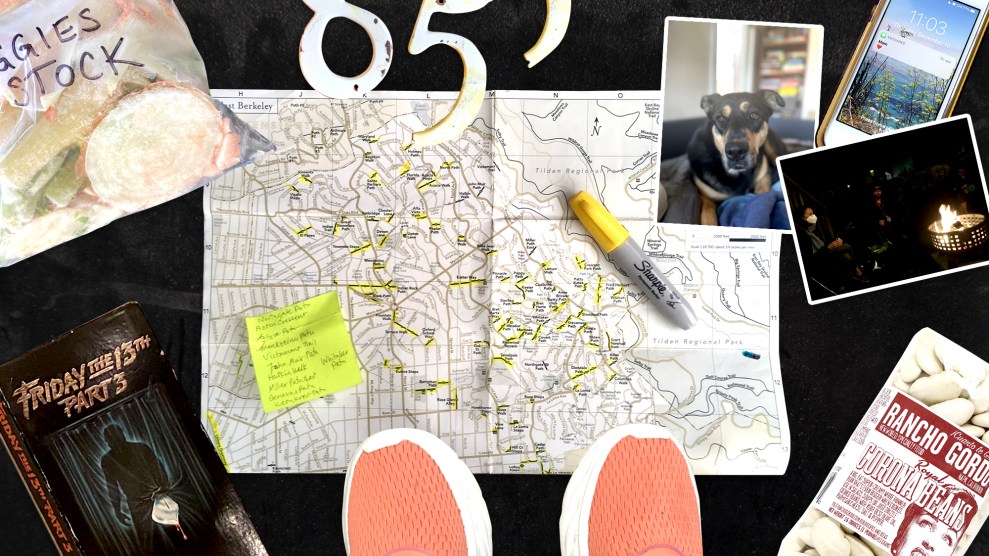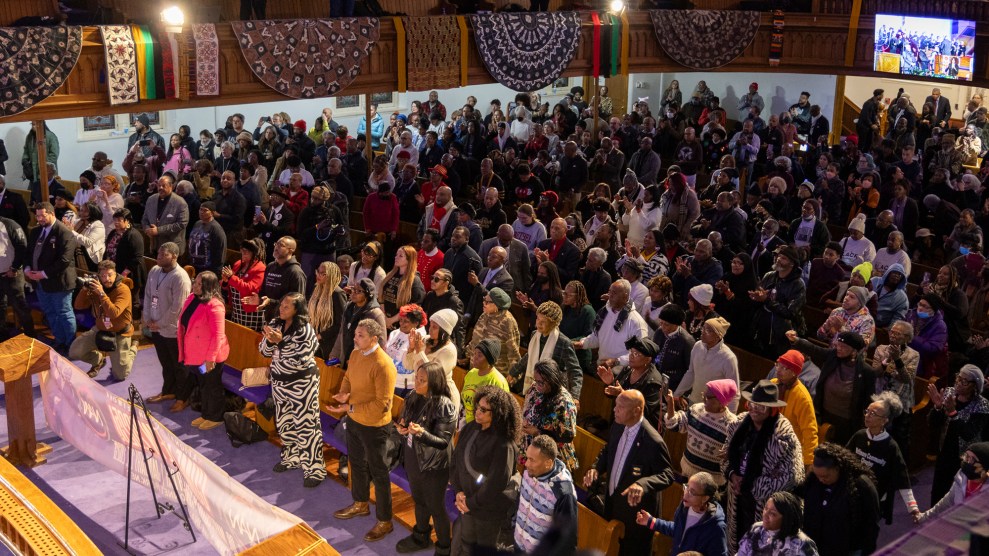You know it’s been a memorable annum when each time people hear the latest dour news, they shake their head, sigh, and mutter, “2020!” But all of us who survived this terrible, horrible, no good, very bad year (Alexander had it easy) will carry certain things with them into the future: moments of sadness, anger, profundity, and inspiration. Images of masked toddlers and loved ones lost. People and pets who gave us comfort. Inspiring books and music. Memories—many bad, but some good ones, too. Odd rituals and items deployed in our scrappy attempts to deal with lives suddenly disrupted.
And so, in addition to asking Mother Jones staffers what they would place into a time capsule as an ode to 2020, we posed the same question to a variety of notable authors, musicians, and more, some of whom were willing to take a break from their complicated lives to reflect. Here are their responses.

A photo of my Uncle John.
“After the Korean War, Uncle John came to the United States to study history in a college in Missouri. He didn’t have enough money to get a graduate degree so he went to New York to get a job. At the New York Public Library, he read the classifieds and figured out that computer programmers make good money, so he borrowed books and learned how to write code. IBM gave him a job. He invited my parents and me to America and sponsored our immigration. He passed away from COVID this year. We couldn’t attend the funeral. I live and work in the United States as a writer because of Uncle John.” —Min Jin Lee, novelist
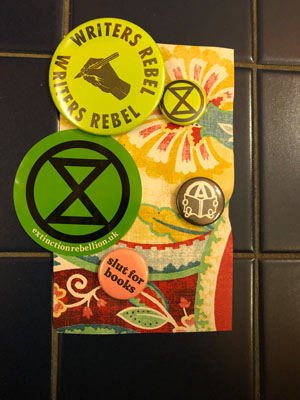
This button card…
“…from Extinction Rebellion and Writers Rebel. If they succeed, there will be people who will be able to explore the time capsule. If they fail, there will not.” —Margaret Atwood, novelist
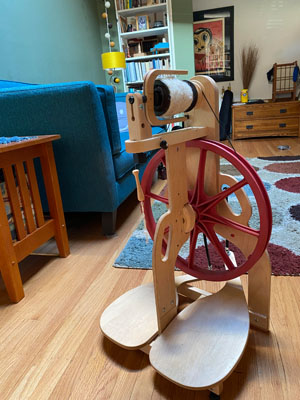
My spinning wheel.
“The knitting. The crocheting. The embroidery. So many people, women in particular, hunkered down with handiwork in 2020—a year that simultaneously turbocharged our technology use and catapulted us back to a pre-industrial primitivism. Suddenly there was time for the diligence and patience crafting requires, not to mention a desperate need for its meditative, screen-free focus. Me? I took up spinning and discovered: If my wheel spun, my mind did not.” —Peggy Orenstein, author & journalist
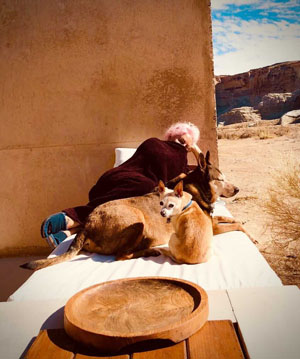
A photo of my wife and dogs.
“2020’s madness took me down into a deep, dark blues. My fierce wife Amy and our dogs Dale and Outlaw Pete pulled me through with a visceral love, strength, and hope I’ve never known. They truly saved me. Bless them, bless life, bless love.” —Nils Lofgren, musician
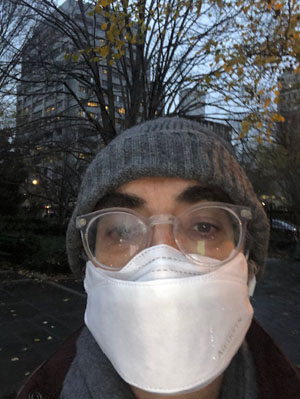
This Air Queen mask.
“Not just because it’s a perfect air mask, but because it was made in South Korea, which took COVID seriously and is leaps and bounds ahead of our own country in terms of keeping the virus in check. The mask isn’t funny, but it attests to the fact that after four years of Trump, we are a joke.” —Gary Shteyngart, novelist
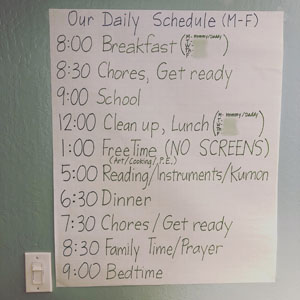
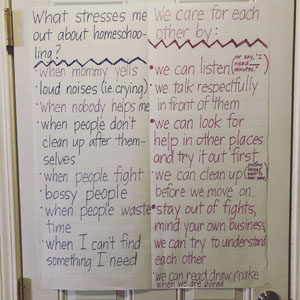
Homemade COVID posters.
“Right at the beginning of sheltering in place, my wife led our family in a discussion about how we could get along while being under the same roof 24/7. These two posters were the result. Versions of both are still hanging on our kitchen wall.” —Gene Luen Yang, cartoonist & teacher
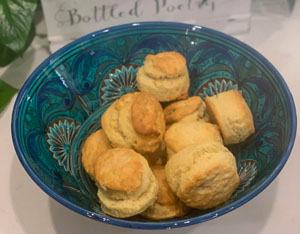
A recipe.
Fried chicken. Veggie lasagna. Homemade biscuits. This past year was filled with anxiety and uncertainty. I stayed sane by writing. And cooking. Virginia Woolf wrote, ‘One cannot think well, love well, sleep well, if one has not dined well.’ I agree, wholeheartedly.” —Kwame Alexander, poet, author, & educator
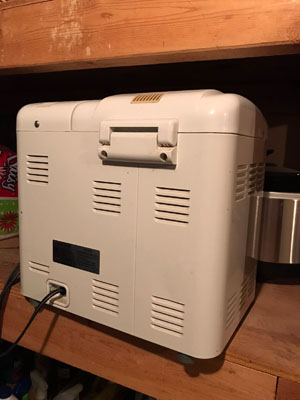
Our old bread machine.
“It was gathering dust in the basement for decades, but like the Volkswagen in the old Woody Allen movie, still worked! Who knew? So bizarre that home-baked bread made us feel safe, and self-reliant, as if the pandemic turned our neighborhood into the frontier, and us into characters from Little House on the Prairie.” —Jane Mayer, author & journalist
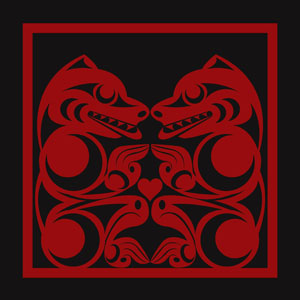
My brother’s artwork.
“We’ve done memorial work and ceremony and prayed, and we lost people we loved. I’ll never forget them. I don’t want to put my dead in a capsule, or let their images stagnate, even for a moment. What I would want to encapsulate is something I often forget, which is that we made art in the tragedy—we made things and created, even when we thought we’d never get beyond the anxiety in the crisis of making more with less. My brother’s studio and bedroom are next to mine. When we first started dealing with a death toll, or seeing our loved ones struggle, we couldn’t make art—we had to mourn and mobilize, but eventually, we stole time and found our way back to something beyond our survival. This is something he did during the pandemic, two bears and a heart—symmetry made in chaos, a beautiful thing made in sorrow. I want to remember there’s still beauty. —Terese Marie Mailhot, author
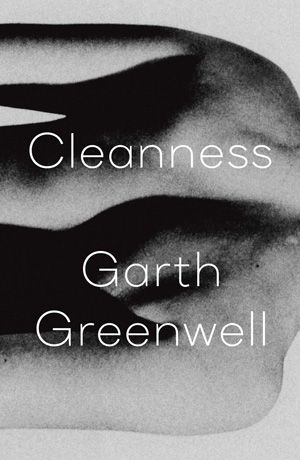
Cleanness, by Garth Greenwell.
“I read this book while traveling through Iraq as protests roiled Baghdad, protests that shared much with those Greenwell’s narrator encounters at one point in the streets of Sofia, Bulgaria—an energetic movement driven by the young, full of disgust at corruption and incompetent governance, though lacking in clear ideas for solutions. The narrator’s reflections on protest and politics, the role of ideas and passions and rage and violence, continued to echo with me throughout 2020. But politics, ultimately, is not where this book rests. Greenwell has bigger game in sight, and politics is only one small way characters in this book try to articulate themselves, find communion with others, and express and act on their sometimes self-annihilating desires. This has been a year of political fervor that at times outpaces careful reflection. Greenwell articulates new visions of our inner core, something precious at any time, but especially in times like these, with such little respect for the vital, and often deeply private work of being human.” —Phil Klay, short story author
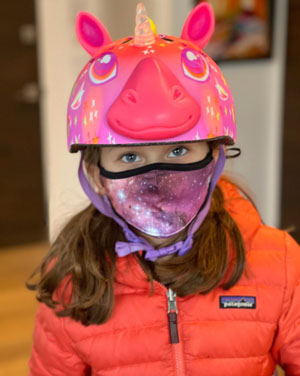
This photo of my daughter.
“In her mask, seven years old, and trying to figure this pandemic out.” —Rosie O’Donnell, actor & mom
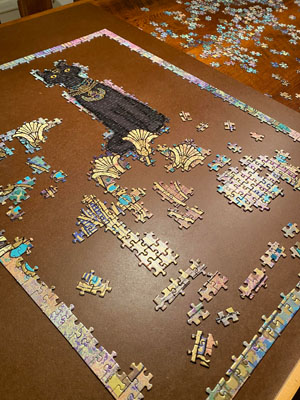
A jigsaw puzzle and an audiobook.
“My state of near-constant pandemic panic has faded into an anxious tedium. I have found that both abate somewhat when I distract myself with an audio book and a jigsaw puzzle. I’m listening to Middlemarch right now, which is distracting and delightful. This puzzle is, as well.” —Ayelet Waldman, author & screenwriter/executive producer
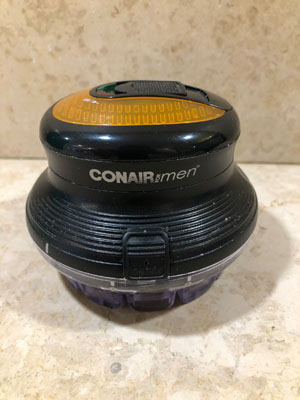
My Barber Eliminator.
“This wonky-looking $60 device from Conair For Men is something purchased just as Vancouver was going into our first lockdown. Used it for eight months, but didn’t fully appreciate how good it was until I then semi-decided to skip it for a few weeks and see what grow-out from its automatic 3mm looks like. Yikes! The Barber Eliminator enables a person of absolute zero haircutting skill to manage a very tidy-looking 3mm all-over on the very first try. It’s sad looking, though—the gadget, not the haircut! Would have had a much less agreeable barber-free year without it.” —William Gibson, novelist

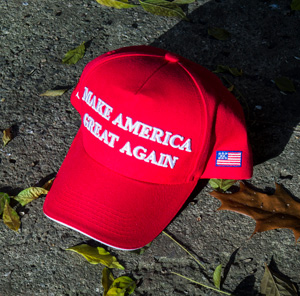
A mask and a red MAGA hat.
“That about sums up 2020.” —Graham Nash, musician
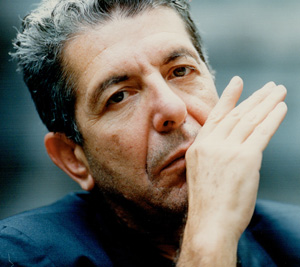
“Democracy,” by Leonard Cohen
I’m sentimental, if you know what I mean
I love the country but I can’t stand the scene.
And I’m neither left or right
I’m just staying home tonight,
Getting lost in that hopeless little screen.
But I’m stubborn as those garbage bags
That Time cannot decay,
I’m junk but I’m still holding up
This little wild bouquet:
Democracy is coming to the U.S.A.
“Cohen articulates the challenge and hope of 2020 like nothing else.” —Craig Newmark, founder & customer service rep, Craigslist and Craig Newmark Philanthropies
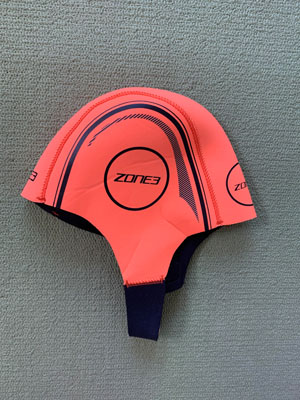
Neoprene thermal swim cap
“I bought this when I began swimming in the San Francisco Bay. I wasn’t searching for a new obsession, but when COVID closed my city’s public swimming pools and the world began to feel like it was closing in on me, I accepted a friend’s invitation to swim in water I’d always assumed was both too cold and too polluted. The bay turned out to be perfectly clean, thanks to the hard work of a generation of environmental activists, and the cold is its own kind of drug—an electrifying jolt of visceral sensation in a time when my entire world has become virtual, distanced, subdued, and intangible. The open vistas of sea and sky, the daily changes of wave and weather, encounters with seals and pelicans, these have been the things that have kept me alert through months that would otherwise have flattened into an indistinguishable haze.” —Dashka Slater, author & journalist
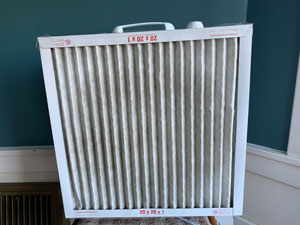
DIY air purifier.
“I made this with a box fan, a furnace filter, and a roll of packing tape. I’m not particularly handy, but during the weeks in the fall that the California wildfires kept the air officially unbreathable, this homemade device allowed me to keep inhaling and exhaling, a small monument to the human ability to adapt to any extreme.” —Dashka Slater
